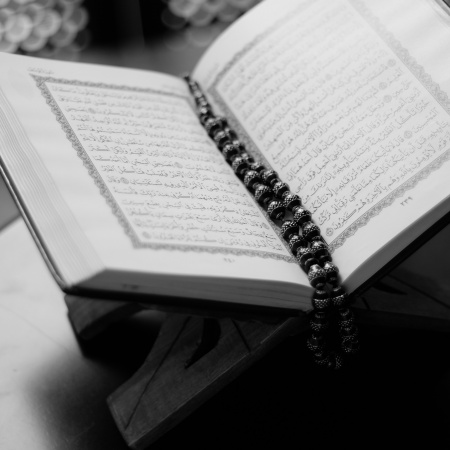There’s No Sectarian Strife in Metro Detroit
By Victor Ghalib Begg
The violence stops here.
Incidents of vandalism at a mosque frequented by Shi’a Muslims in Metro Detroit have prompted media speculation that the disease plaguing Iraq might be spreading to American soil. But the disease isn’t contagious.
Factional violence between Sunnis and Shi’a is not another thing Americans need to add to their list of things to be afraid of. Shi’a and Sunni Muslims have lived in peace in Iraq for centuries, just as Catholics and Protestants live together peacefully in America.
The violence that went on for years between the two Christian factions in Ireland had little effect on the relationships between them in America. Likewise, Americans should not fear that the sectarian strife in Iraq today might result in such bloodshed here.
Irrespective of their doctrinal affiliation, Muslims build their faith on 5 pillars–belief in one God; acceptance of
Muhammad (s) as the last of God’s messengers; performing daily prayers, fasting in Ramadan; giving charity; and performing the pilgrimage to Mecca if they are able to do so.
Upon the passing of the Prophet (s) 1,400 years ago, Abu Bakr (ra) a close Companion of the Prophet (s), was chosen to lead the Muslim community as its first caliph. Those who followed him are now known as Sunni Muslims.
Another group of the Prophet’s (s) followers strongly believed the successor of the Prophet (s) must come from his immediate family, insisting that Ali (kw), his cousin, was the rightful successor. They have come to be known as Shi’a.
This political schism was indeed unfortunate; however, most Muslims today have come to terms with history and restrict their arguments to minor theological distinctions.
This narrow rift alone cannot result in the level of mayhem that is now becoming a way of life in Iraq. Iraqis lived peacefully, as neighbors, before the American invasion.
Reports of the conflict in Iraq are filtered to us through varied prisms–Sunni Kurds are referred to as Kurds but not as Sunnis. Secular members of Saddam Hussein’s regime, who are the primary cause of sectarian massacres in Iraq, are called Sunnis.
The fact is–rivalries in Iraq have less to do with theological disagreements and more to do with oil, land, political power and the presence of foreign forces.
During the recent Israeli-Hezbollah war, there was tension but no fighting among Jews and Arabs in Metro Detroit. When ethnic cleansing of Muslim Bosnians at the hands of Serbs occurred in the former Yugoslavia, peaceful street demonstrations were organized by groups in America.
Did we see the bombing of churches in Iraq translate into members of the Chaldean community attacking Iraqi mosques? The answer is: Of course not.
Have we seen the kind of violent demonstration in America by Muslim Americans that followed Pope Benedict XVI’s comments in some parts of the world? No.
The vast majority of the ethnically diverse Muslim American community today is American-born, and they are committed to American values.
Michigan’s Muslim leadership, Shi’a and Sunni, white and black, Arab and non-Arab, joining hands under the umbrella of the Council of Islamic Organizations of Michigan (CIOM), have come together to condemn hateful acts against any house of worship or any individual.
As active and concerned members of American civil society, American Muslims will not allow political differences between Sunnis and Shias to erupt into violence at home.
Victor Ghalib Begg is chair of the Council of Islamic Organizations of Michigan in Bloomfield Hills. E-mail comments to letters@detnews.com.
9-10












2007
2,926 views
views
0
comments